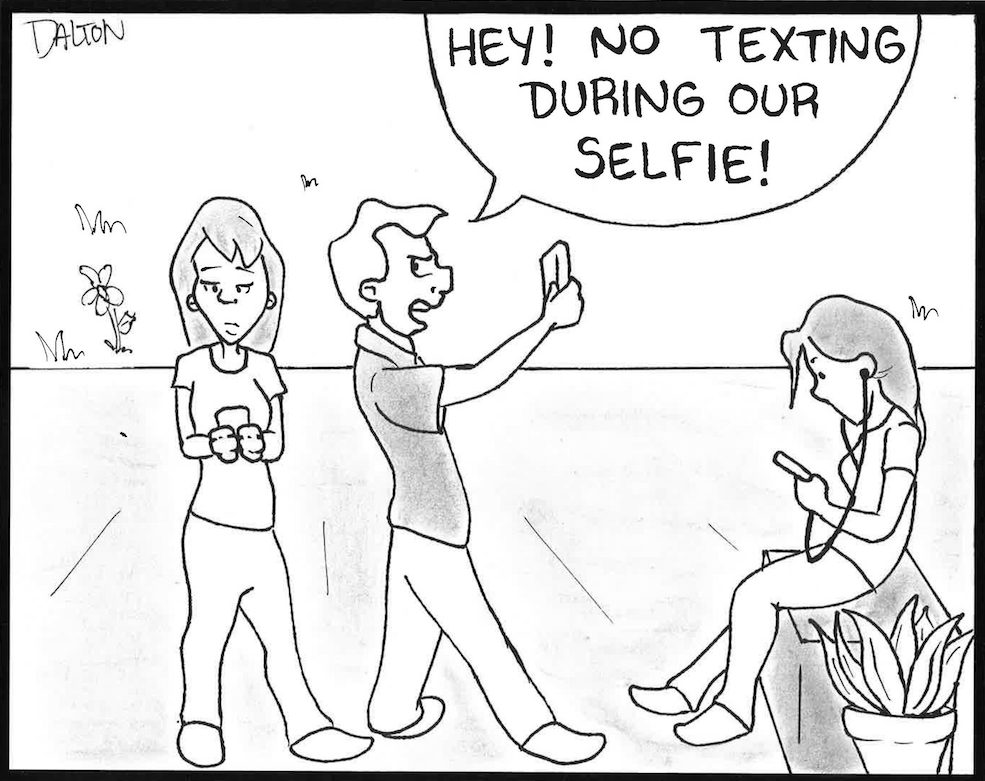The world is more connected and digitized than it has ever been. People log in, search statuses, type tweets, publish posts, view vines, snap selfies and flip through filters. They binge-watch, level-up, swipe left, toggle, click, like, favorite, zoom, boomerang, retweet, post, share, subscribe and heart.

In this world of digital interaction and virtual reality, some people wonder if the online world is affecting our offline one. Hailey Holmgren, a graduate student working with BYU professor Sarah Coyne, thinks it does. Holmgren and Coyne are researching the effects of social media use on children entering adulthood.
Holmgren said although only about 10 percent of young adults are addicted to social media, 10 percent is still a significant number.
“Social media addiction affects how (adolescents) interact with others and how they feel about themselves,” Holmgren said.
Holmgren believes people with addictive tendencies can retain healthy relationships with others, but addictions are likely to come with negative side effects, interfering with those relationships.
“We’ve found that those who suffer from social media addiction are more prone to depression, are more aggressive online and are more likely to become online ‘trolls,'” Holmgren said.
Media and internet usage has steadily increased over time. According to a recent study, the number of internet users this year is more than 3.4 billion. Of those, more than 2.3 billion are active on social media and the average social media user spends two to three hours a day on their accounts. The average college freshmen spends more time on the internet and social media than they do having face-to-face interactions with their peers.
This lack of interpersonal relationships and interaction with peers seen among some adolescents has led others to research and study media effects more closely.
BYU professor Larry Nelson has found in his research that “problematic media,” (activities including violent video games, pornography and gambling), is not a direct cause of social withdrawal, but the two are closely related. This behavior can be a catalyst for less social interaction for people who are already prone to avoid social situations.

“Repeatedly, our work has found that those who are floundering in their 20s in making the transition to adulthood (include) individuals who engage in a lot of risk behaviors: drug and alcohol use, binge drinking, risky sexual behavior,” Nelson said. “They also tend to be ones who report very high usage of … problematic media.”
Nelson said high media use can act as a catalyst when mixed with withdrawal-prone personalities, leading to more social withdrawal and risky behavior.
Some use the internet and the digital world as a distraction from real life.
“I think my social media usage increased the most during midterms, projects, papers and final exams,” said recent BYU graduate Shaina Machado. “I basically used it as a way to procrastinate.”
Machado said media didn’t affect her social life much during school.
“The only time it affected my social life was before class; I would be messing around with social media instead of meeting the people around me,” Machado said.
In contrast, some are able to balance healthy amounts of social media with their day-to-day tasks.
“I don’t spend a lot of time on social media — maybe an hour a day max,” BYU senior Charity Doty said.
Media use was defined as neither good nor bad by either researcher. All agreed there are pros and cons to the digital world but technology and media use can be unhealthy in excess.




